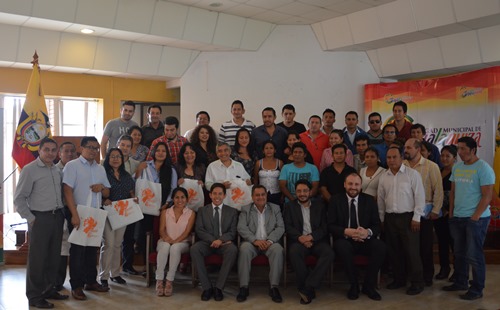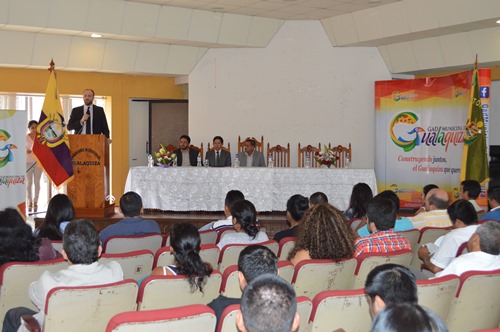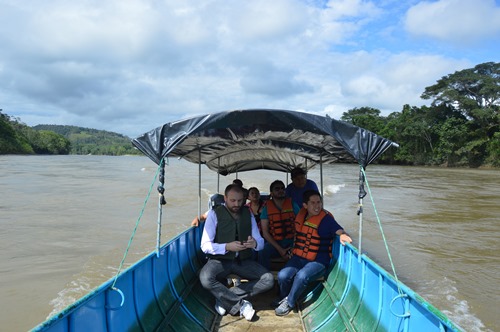Governance and Leadership Programs win followers in Ecuador
The considerable increase in demand shows the increasing interest of public officials and Ecuadorean leaders to get training to provide their communities with quality pubic management
After a successfull invitation and a rigorous selection process, on Friday a new edition of the Governance, Political Management, and Public Management, and Leadership for Change Programs started in Ecuador. The programs will be executed by the Universidad de Cuenca and the Escuela Superior Politécnica del Litoral (ESPOL) with the institutional support of CAF, Development Bank of Latin America, and the academic counseling of the Graduate School of Political Management at the George Washington University (GSPM - GWU).
For the first time, both programs will reach the rural population of Gualaquiza, in Southeastern Ecuador. The Mayor, Patricio Ávila, highlighted the importance of this type of training, especially in the southern rural areas of the country, and valued the ethical role and transparency as essential principles in all the actions implemented in the framework of this initiative.
Bernardo Requena, CAF's Director Representative in Ecuador, explained, " Latin America urgently needs highly trained officials, committed with sustainable development and who can be trusted with the country's resources, so they can be efficiently managed. allowing for the improvement of the quality of life of societies in the region".
Andrés Martínez, General Coordinator of Programs at the Universidad de Cuenca, shared methodological aspects of the course with the participants, and highlighted that this year the number of registrations exceeded expectations, reaching 300 individuals in three areas in Ecuador: Gualaquiza, Cuenca, and Loja.
Both programs will start in Guayaquil, Santa Elena, and Vinces in mid-August, implemented by the Escuela Superior Politécnica del Litoral (ESPOL). Since 2002, more than 6,800 participants have been trained in Ecuador in 21 provinces and more than 70 cantons in the country. In Latin America, the figure reaches 52,000 individuals who have received training in 11 countries of the region.
CAF's more recent content

CAF, ECLAC, IDB and PAHO Promote Sustainable Development in the G20
The Regional Organizations of the Americas congratulate Brazil on its successful G20 Presidency, highlighting its leadership on key issues such as poverty, governance, and climate change. They also reaffirm their commitment to actions that promote equity and development in the region.
Urgent Call for Action to Safeguard Caribbean SIDS at CAF Symposium
As the global community grapples with the escalating climate crisis, Caribbean Small Island Developing States (SIDS) are running out of time to secure critical investments and support needed to strengthen their economies and protect vulnerable communities from the intensifying impacts of climate change. With the window to take decisive action rapidly shrinking, CAF - Development Bank of Latin America and the Caribbean, in partnership with the Commonwealth Secretariat and the Antigua and Barbuda High Commission, brought together key stakeholders for a symposium in London to address the critical vulnerabilities Caribbean SIDS face.


